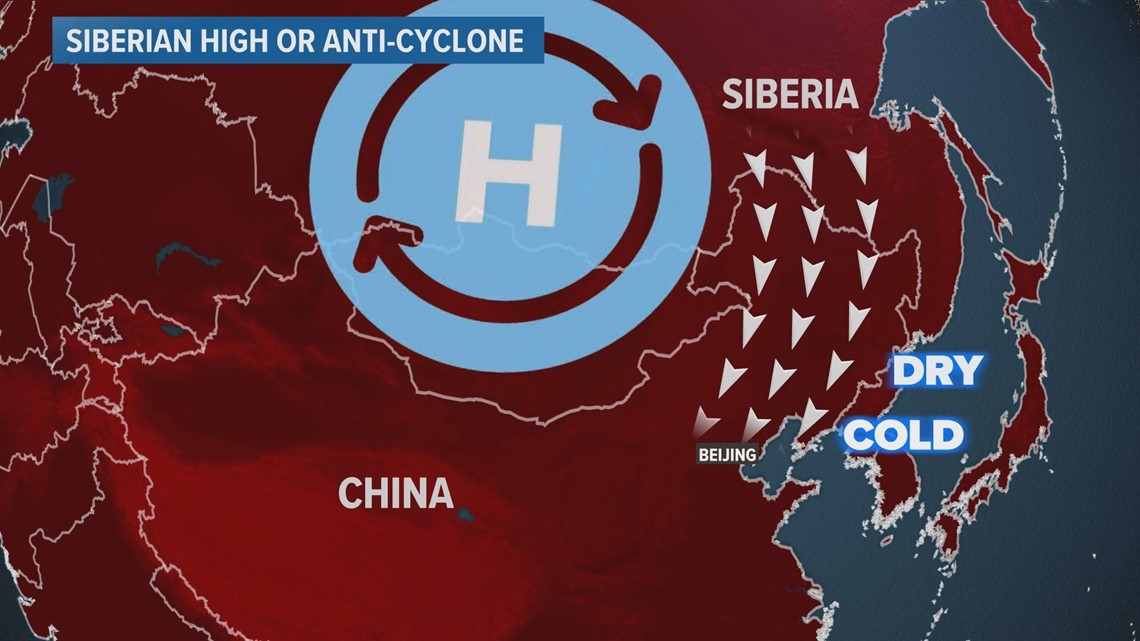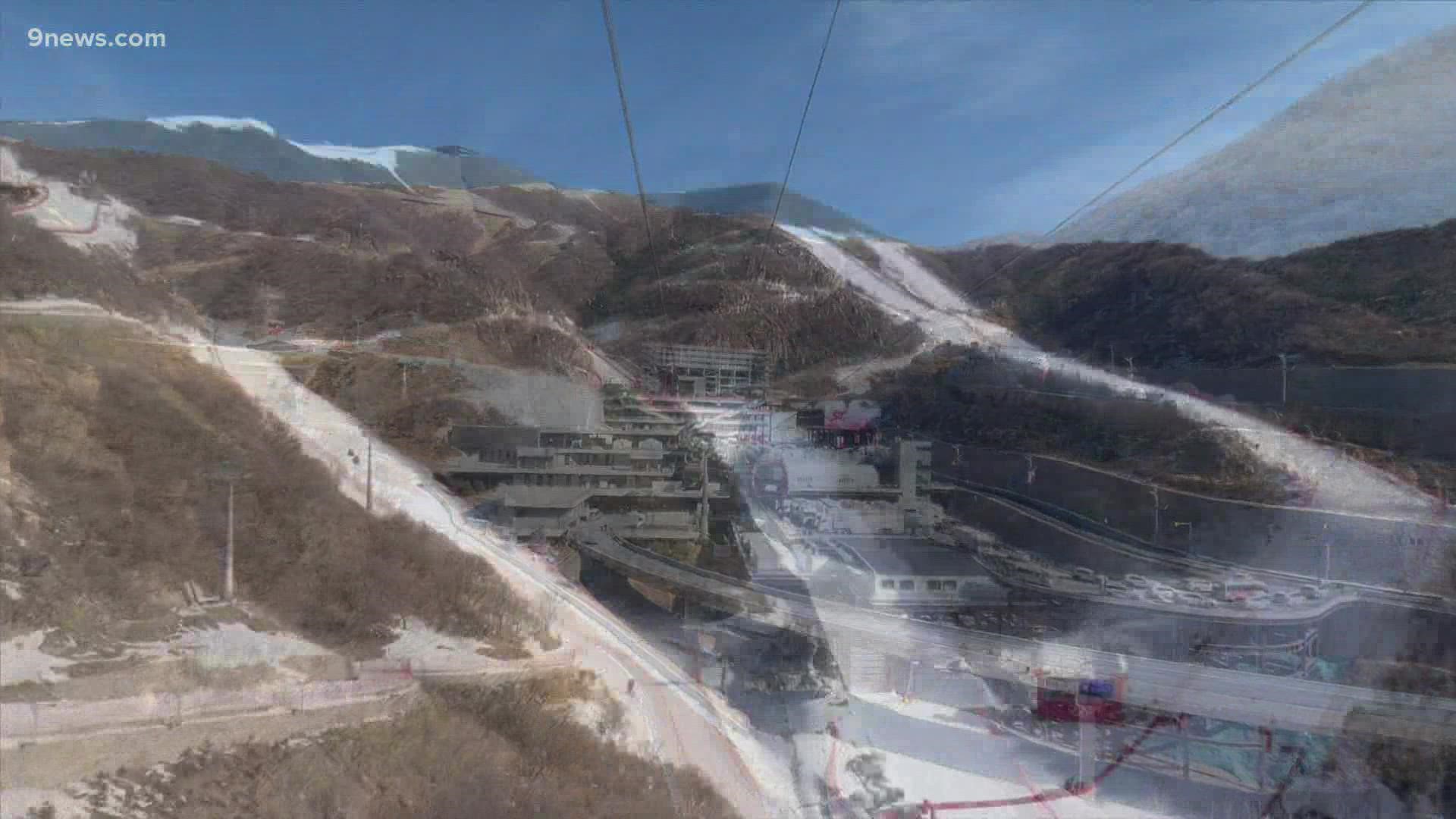BOULDER, Colo. — Americans have been learning a lot about the harsh climate of northern China during the Olympics.
Wind chill temperatures have consistently been below freezing and sometimes close to negative 30 degrees Fahrenheit. And the high winds have shut down events and played a factor in the athletes' performances.
The climate near Beijing may also be considered strange to most Americans, as snow is not common there despite the frigid temperatures.
Windchill temperatures have dropped as low as negative 27, and yet there was no natural snow there before the Games started two weeks ago.
Those tough weather conditions originate to the north of China in a Russian province called Siberia.
“It’s actually called an anticyclone," said Ulyana Horodyskyj, a glaciologist with CU Boulder. "It’s this weather phenomenon that’s a large-scale circulation of winds.”
She said the tundra in Siberia gets so cold that it creates an area of high pressure that can last the entire winter.
Climatologists call it the Siberian High or the Siberian Anticyclone.


The winds around an organized area of high pressure, known as an anticyclone, rotate clockwise -- opposite of a cyclone. That pushes freezing Siberian air right into northern China.
It’s not only cold and windy, but that air is also extremely dry. Snow is rare in the Beijing area, despite the frigid air.
"This high pressure is so heavy and dense that it is very difficult for air to rise up and form clouds, and thus no precipitation," Horodyskyj said.
There was an unusually powerful winter storm in north and northeastern China in early November that dumped several inches of snow in Beijing, but it essentially didn't snow again in the months leading up to the Olympics.
With zero snowpack by the end of January, all the snow for the events had to be human-made.
Finally, some snow fell during some of the Olympic events in February.
“So they still get some of that snowfall, so it’s not like it’s completely devoid," Horodyskyj said. "The area is just known for its lack of snowfall naturally because it’s such a dry area.”
She said the Yanquig mountains, where the alpine events are held, only average 10 to 20 inches of snow per winter. By comparison, Winter Park, Colorado gets more than 300 inches of snow in an average winter.
Oddly enough, Beijing averages more precipitation annually than Denver thanks to the Asian monsoon. The city can get more than 20 inches of rain in an average summer from May through September.
"The Asian continent heats up in the summer and that draws in the moist air from the ocean," Horodyskyj said. "Most of China relies on that reversal of winds to fight off the dry north winds from Siberia."
SUGGESTED VIDEOS: Beijing Olympic Games

